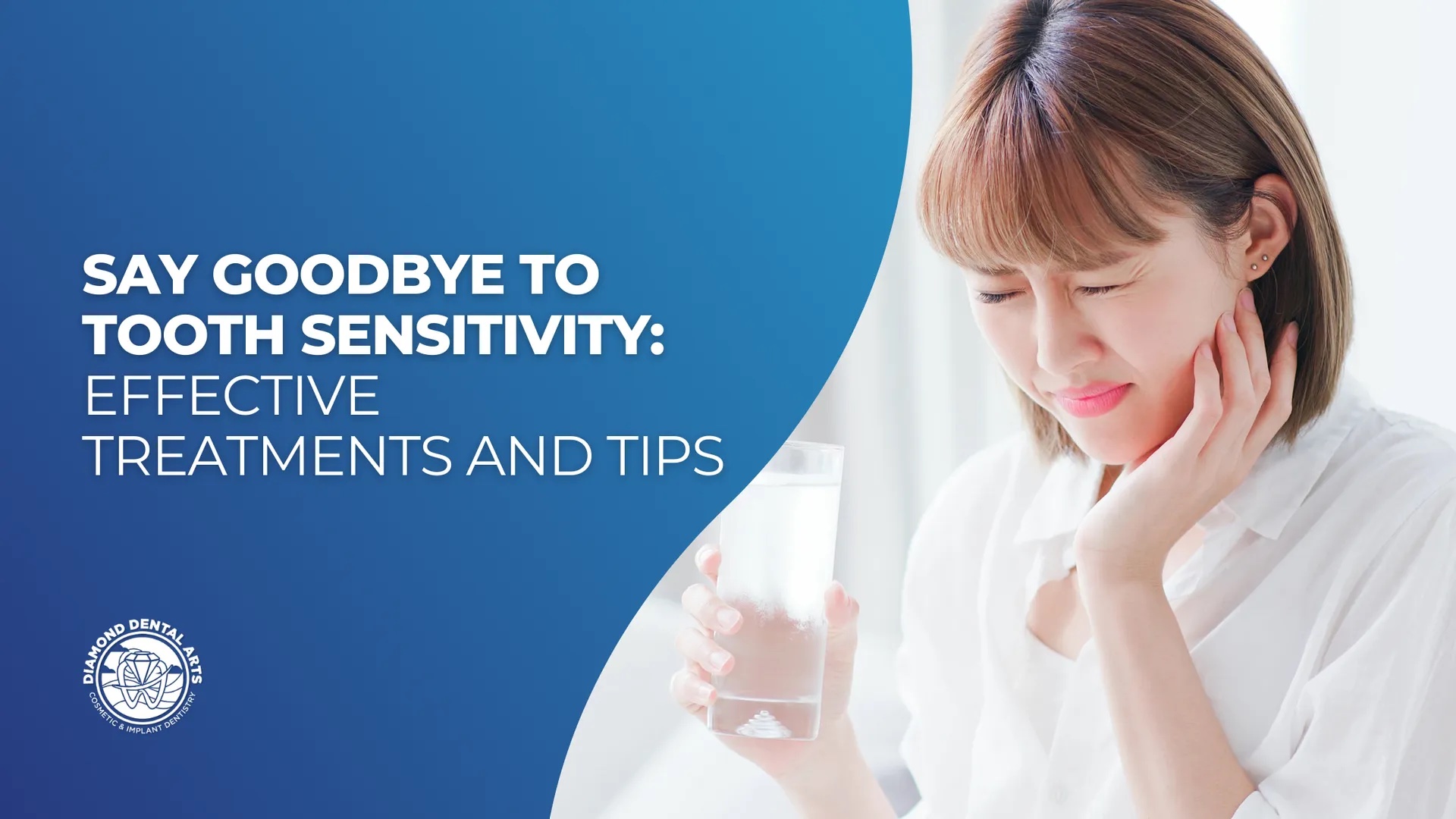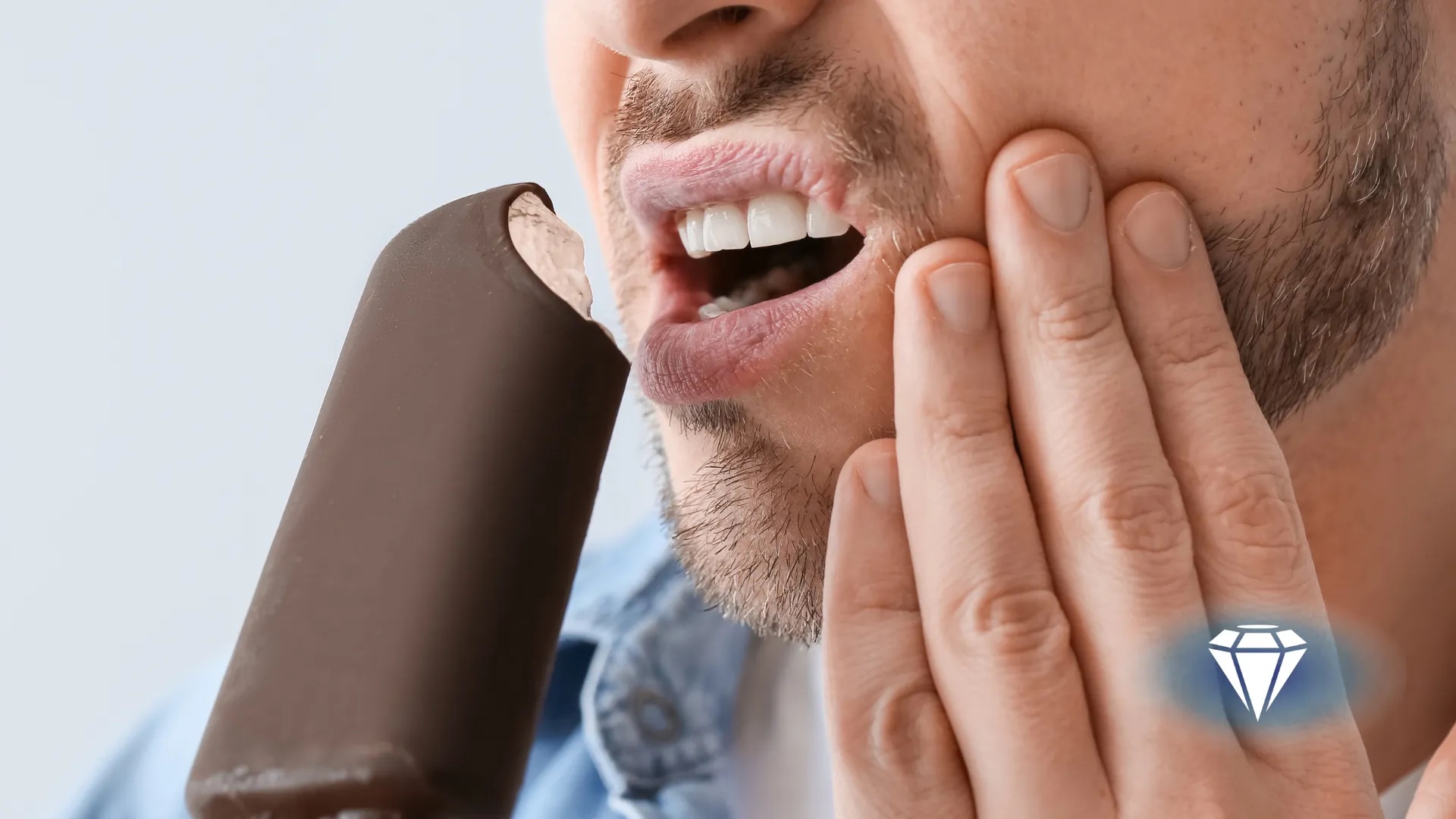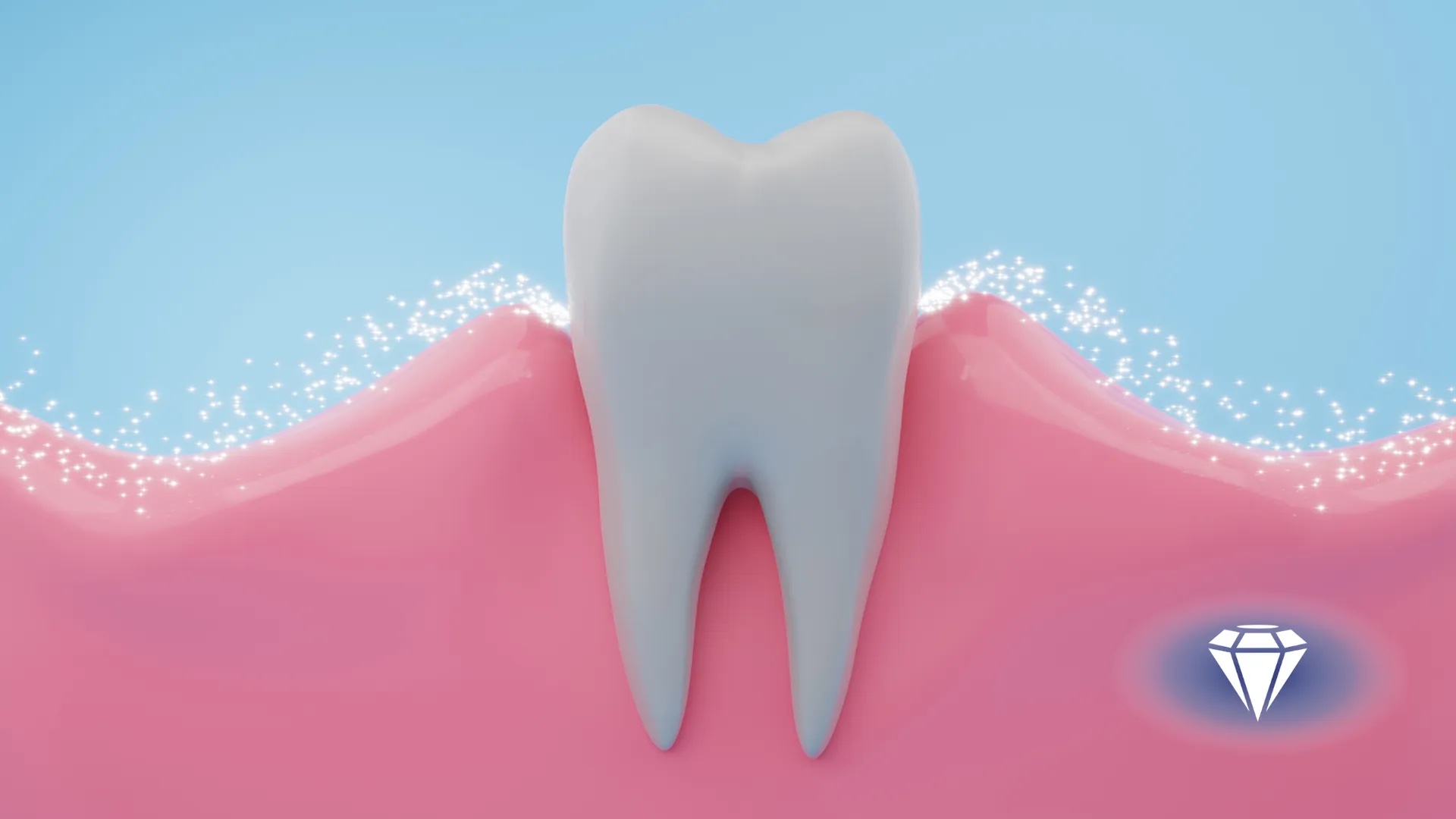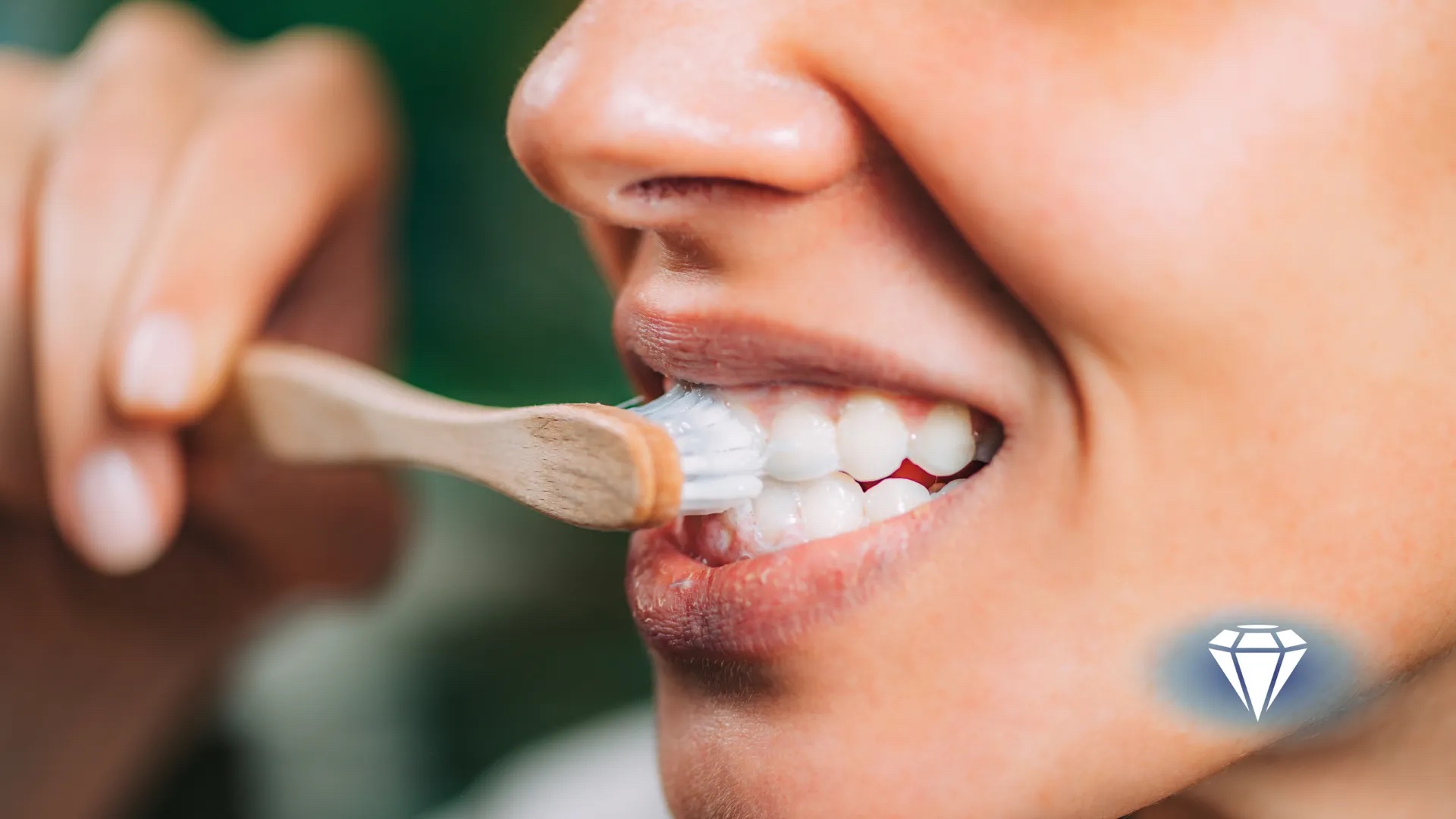
Imagine you are sitting on the couch, relaxing with a good book and a hot cup of coffee or tea. You take that first sip of your delicious beverage, only to feel a sharp pain radiate through your teeth. This can be a sign of tooth sensitivity, one of the most common issues we hear about as dentists. Tooth sensitivity can be a frustrating and painful experience, but understanding the causes and available treatments can help manage and alleviate this discomfort. Our dental practice is here to provide comprehensive care and effective solutions for tooth sensitivity.
THE ANATOMY OF A TOOTH AND THE CORRELATION TO TOOTH SENSITIVITY

Our teeth are comprised of four different components: enamel, dentin, cementum, and pulp. The first layer is the enamel, the hardest substance in the body, which protects the tooth from harm. The second layer is the dentin, which lies below the enamel and is largely impacted by different temperatures that can cause discomfort. The third layer is the cementum, which covers the pulp and anchors the tooth into the jaw. The last layer is the pulp, the center of our teeth, connecting our teeth to the nerves, tissue, and blood vessels. Our teeth are much more complex than what we see with the naked eye, which is why it is crucial to understand the importance of oral health. If the enamel is not protected, there is a risk of tooth sensitivity. Here are five reasons why you may be suffering from tooth sensitivity and preventative measures to help keep sensitivity at bay.
5 REASONS YOU MIGHT HAVE SENSITIVE TEETH

BRUXISM
This dental condition, formally known as bruxism, is commonly referred to as teeth grinding. This can occur for various reasons like stress, anxiety, sleep apnea, and more. Although our tooth enamel is the strongest substance in our body, it can still be damaged through the grinding of our teeth. As our teeth grind, it slowly breaks down our enamel and exposes the dentin. Once the dentin is exposed, it will cause your teeth to become sensitive to hot and cold temperatures, making it difficult to enjoy foods and beverages. Sensitivity to temperature is not the only issue; exposed dentin can lead to discoloration and cracked or chipped teeth. Once the enamel has been destroyed, it cannot be restored, so it is important to focus on your oral health routine to prevent further damage.
GUM DISEASE
Gum disease, formally known as periodontal disease, usually begins as gingivitis. This refers to the branch of dentistry that focuses on the health of our teeth and gums. Gum disease shows its first signs as gingivitis when the gums become irritated, red, and inflamed. This occurs because of plaque, a sticky film of bacteria that begins to build along the gums and teeth. If this is not taken care of, it will weaken the enamel, resulting in tooth sensitivity. Symptoms of gum disease to watch for include bad breath, red or swollen gums, bleeding gums, and painful chewing.
CAVITIES
A cavity is a permanent opening or hole caused by food and bacteria building up on the teeth, known as plaque. The bacteria in plaque produce acid that deteriorates the enamel, leading to tooth sensitivity. Brushing and flossing can help remove plaque, but if it builds up, it can eat away at the enamel and create a cavity, resulting in teeth sensitivity.
OVERUSE OF WHITENING PRODUCTS
While a bright white smile is desirable, overusing whitening products can eventually destroy your enamel, exposing your dentin. Professional teeth whitening is safe when done by a dental professional, but improper use of whitening products can cause permanent damage. Chemicals in whitening gels can cause burns, sickness, or dentin exposure if not applied correctly. Exposed dentin will make your teeth overly sensitive and cause discoloration, giving them a yellow look. It is best to consult a dental professional before using whitening products, as they can recommend the best solution for your needs.
OVER-BRUSHING YOUR TEETH
A common question in the dental industry is whether someone can brush their teeth too much, and the answer is yes. It is important to brush twice a day, but any more than that can create more problems than it solves. Over-vigorous brushing can lead to dental abrasion, tooth sensitivity, and gum recession. This occurs if a hard-bristle toothbrush is used, as it can wear down the enamel due to the aggressiveness of the brush.
DETERMINING YOUR TYPE OF TOOTH SENSITIVITY

Understanding the specific type of tooth sensitivity you are experiencing is crucial for effective treatment. Tooth sensitivity can manifest in different ways, and identifying the cause can help us tailor the best solution for your needs.
SENSITIVITY TO COLD
Sensitivity to cold is one of the most common types of tooth sensitivity. It can occur when you consume cold foods or beverages like ice cream or cold water. This type of sensitivity often indicates that the enamel is worn down, exposing the dentin. It can also be a sign of receding gums or early-stage gum disease.
SENSITIVITY TO HOT
Sensitivity to hot can occur when consuming hot foods or beverages, such as coffee or soup. This type of sensitivity may indicate deeper dental issues, such as severe enamel erosion, cavities, or even cracks in the teeth that allow hot substances to reach the nerve endings more easily.
SENSITIVITY AFTER A FILLING
It is not uncommon to experience tooth sensitivity after a filling. This sensitivity is usually temporary and should subside within a few days. However, if the sensitivity persists, it could indicate an issue with the filling, such as it being too high or not properly placed, necessitating a visit to the dentist for adjustment.
PREVENTATIVE MEASURES FOR TOOTH SENSITIVITY

Now that we have discussed some of the causes of tooth sensitivity, it is time to discuss solutions to prevent it. While some measures may seem like common knowledge, it is crucial to fully understand what you can do to alleviate pain in your oral cavity.
- Invest in a desensitizing toothpaste: This specific toothpaste is made to help with overly sensitive teeth and provide protection against plaque and acids.
- Maintain a routine of brushing your teeth twice a day with a soft-bristle toothbrush: This ensures your teeth are cleaned safely.
- Limit foods high in acidity and sugar: This helps keep the enamel in healthy condition without damage.
- Visit your dentist every 4-6 months: Professional cleanings and oral exams ensure your teeth are properly maintained and free from sensitivity.
HOW TO RELIEVE TOOTH SENSITIVITY AT OUR DENTAL PRACTICE

At our dental practice, we offer several treatments to help relieve tooth sensitivity. Two of the most effective treatments are fluoride treatment and tooth desensitization.
FLUORIDE TREATMENT
Fluoride treatment involves applying a fluoride gel or varnish to the teeth. This treatment helps strengthen the enamel, making it more resistant to acids and bacteria that cause sensitivity. Fluoride treatments are quick, painless, and can provide significant relief from sensitivity after just one session. Regular fluoride treatments can also help prevent cavities and further enamel erosion.
TOOTH DESENSITIZATION TREATMENT
Tooth desensitization treatment involves applying a special desensitizing agent to the exposed dentin. This agent helps block the pathways to the nerves in the teeth, reducing pain and sensitivity. The treatment can be applied in-office and provides immediate relief. For long-term management, our dental professionals may recommend at-home desensitizing toothpaste and gels to use as part of your daily oral care routine.

Our dental team is dedicated to providing personalized care to address your specific needs. We will work with you to determine the best treatment plan for your tooth sensitivity, ensuring you can enjoy your favorite foods and beverages without pain. If you are experiencing tooth sensitivity, schedule an appointment with us to explore your treatment options and find relief.
If you are feeling that tinge of pain in your oral cavity, it is best to visit the dentist to prevent any further damage. It is always better to be safe than sorry. If you are concerned about tooth sensitivity or looking to improve your smile, contact us today. We want to ensure your oral health is always taken care of and that you avoid any unwanted health problems.
